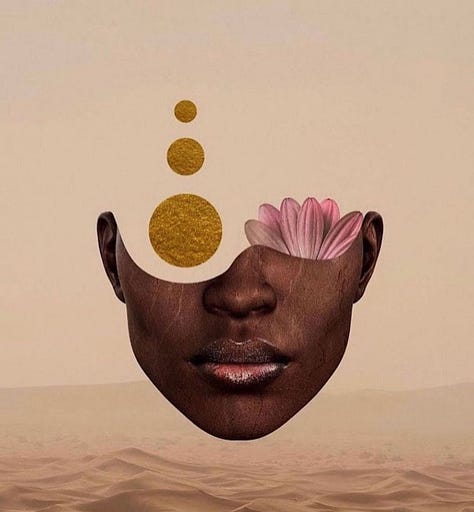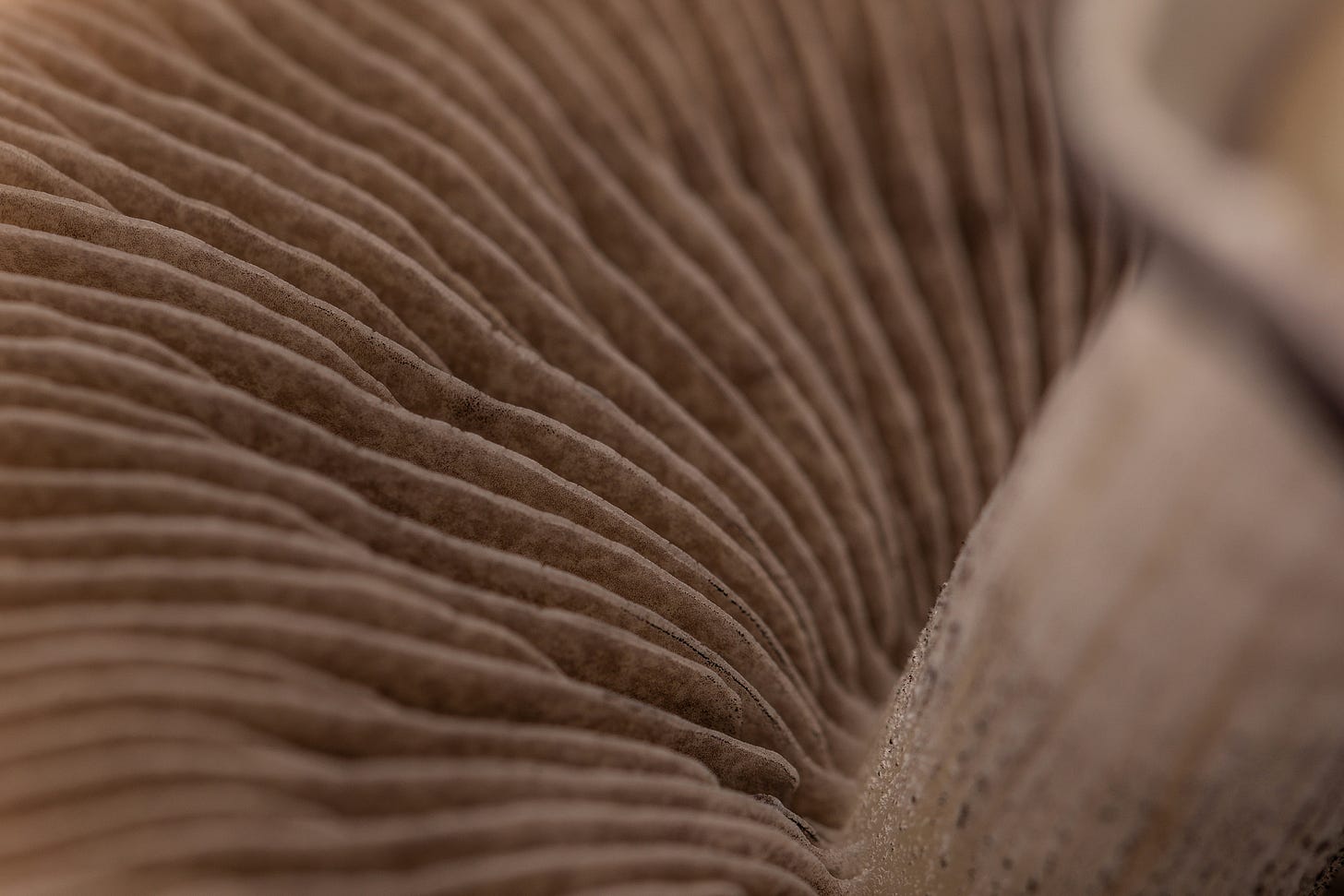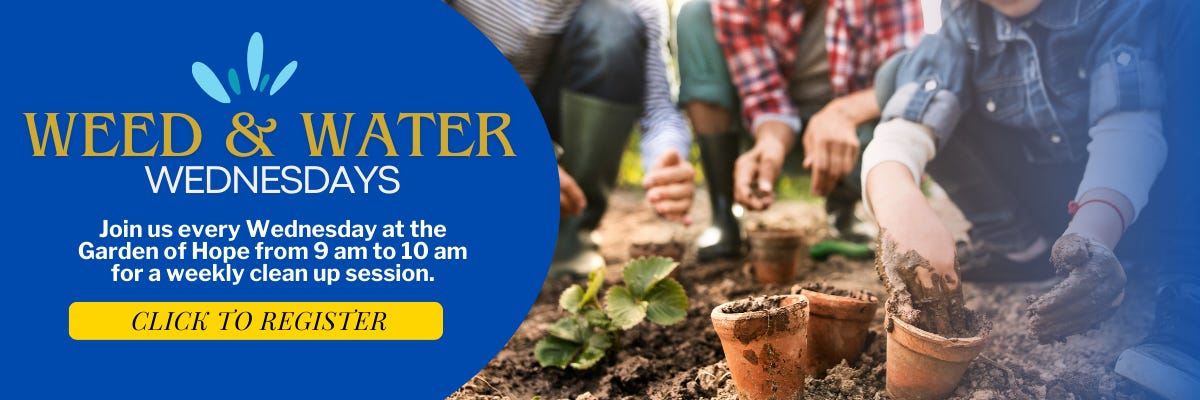8 Mushroom Recipes So Good They’re Magic
Mushrooms are truly misunderstood magic, and their innate wisdom can be distilled into countless life lessons to teach us how to be better to ourselves, each other, and the world around us. If humans mirrored the intelligence and behavior of mushrooms, we would have a more joyous and connected world. I know this sounds hella woo woo…but hear me out.
It’s what you do in the dark that puts you in the light.
A few years ago I teared up watching this Under Armour commercial that was a tribute to Michael Phelps and the very much behind-closed-doors effort that made him one of the greatest athletes of all time. However, as many Olympians or high-performing individuals on the planet will tell you — what the world sees in a few seconds under the spotlight is a result of 24–7, 365 days a year ‘in the dark’ of blood, sweat, and tears. It’s easy to perceive success as innate talent or luck rather than acknowledging that we’re seeing the brief, shiny end result of a long, tumultuous journey often filled with failure and sacrifice.
Mushrooms are the Olympic gold medalists of our world’s ecosystem. They are toiling away and working every minute of every day underneath our feet to create life, decompose toxins, and build all sorts of magic. Mycelium networks exemplify perseverance at its finest and are consistently, patiently building underground in the darkness. Their unwavering dedication to this process beneath the soil ends up coming to fruition in the form of mushroom-fruiting bodies above ground — that end up on our plate to nourish our bodies, and some are even fueling a mental health revolution.
Step outside of the conformity and comfort of the collective. Positive disruption requires you to march to the beat of your own drum.
It’s difficult to forge your own path when your peers are figuratively synchronized-swimming in the opposite direction. However, the perks of being a nonconformist allow for collaboration with diverse species, enabling far greater creation than what you could manifest solo.
Environmental Ethics describes two extreme degrees of mindsets: egocentric and ecocentric. An egocentric mindset can best be described as “actions based out of personal prosperity without consideration of the effects to others.” An ecocentric mindset is “the holistic view that each part of earth is inseparable, and to consider yourself as equal value to plants, animals and land.”
Most people, most days, make decisions from an egocentric worldview and have a limited concept of how all life on earth is connected. However, the more cultured and diversified our thinking becomes through things like travel and exposure to diverse perspectives, the more we can shatter the pattern of self-interested narratives and transcend into an ecocentric way of operating.
Remember your roots, but seek discomfort in exploring the world.
They say home is where the heart is for a reason. It’s beautiful to stay connected to your past, yet nothing is more limiting than confining what you explore (both experientially and geographically) to the circumstances your youth provides. Although your given family is invaluable, there is a significant difference between who you grow up with and your chosen family of friends later in life.
Chosen family tends to align with you at your most evolved state, at a stage where it’s easier to identify qualities you want in relationships after having gone through major developmental phases to feel secure in who you are in the world. This explains the phenomenon of meeting someone for half an hour at a party and feeling a genuine soul connection deeper than you have with a friend who has known you for decades.
Regardless of what you think about fate, there is an undeniable difference in what your existence will shake out to if you let life ‘happen’ to you versus going out into the world and creating the life you want through trial and error, hard work, and willingness to fail. If you choose the former as your life strategy (and don’t ever flee the figurative and literal nest to seek growth and discomfort), the social norms of where you grow up may potentially limit your fullest expression.
Mushrooms illustrate this lesson with grace — proven by countless case studies all over the world, right underneath our feet. When a new branch grows from the mycelium network, it forever stays entangled with its origin roots yet ceaselessly explores to connect with the ecosystems around it, growing stronger and evolving all the while.
Like your most-traveled but still-humble friend who has an epic story for seemingly all the countries brought up in conversation, fungi are inevitably the most cultured species of all the kingdoms while forever remaining enmeshed with their home-grown values.
Thank you for taking a glimpse under the soil during this mushroom masterclass for a few shining examples of the wisdom we can glean from fungi; they truly are a beautiful example of mother nature’s intrinsic moral code and serve as a role model for idealistic humanitarian values.
Food For Thought
Words, songs, inspiration and lessons I saved, read, wrote down, and savored this month.
READ - How Far $100 Goes at the Grocery Store After Five Years of Food Inflation
READ - Let People Eat
READ - Find a Farm: A young man has created a map of farms across the country that sell grass-fed beef, regeneratively raised meats, pasture-raised eggs, grass-fed dairy, organic fruit, herbs, and vegetables, raw honey, wild-harvested coffee beans & tea, and wild fish so people can buy locally. Central and Southern CA needs filling in. Contact him to add.
LISTEN - How egg yolks get their color, from mellow yellow to electric orange
Words, Lessons & Inspiration



Opportunities



Mushrooms are a severely underrated vegetable. They’re often hiding in the background, playing the supporting role instead of having their time in the limelight. But mushrooms are a powerhouse, adding serious meatiness and deep, rich flavor everywhere they’re added. They can add complexity, consistency, richness, and umami to all kinds of dishes, everything from apps to sides to mains. Check out my round of my favorite mushroom recipes.
COOK
PRESERVE
Freezer
If you're unable to use mushrooms in recipes within a week, consider freezing them. However, fresher mushrooms tend to freeze better, so do this sooner rather than later—and remember that you'll need to cook them first.
Yes, the first step is to briefly cook the mushrooms, which will help preserve their quality and flavor when frozen. To do this, lightly sauté them in butter until they are just cooked or steam them whole for 5 minutes (quartered or sliced mushrooms can be steamed for roughly 3 minutes).
For the best color post-freezing, you can also dip mushrooms in a solution of 1 pint water and 1 teaspoon lemon juice before cooking, according to the National Center for Home Food Preservation. Once the cooked mushrooms cool, place them in a freezer-safe bag and store in the freezer for up to 12 months.
Dehydration
Another long-term storage option is to dry your mushrooms. Compared to freezing, this method better preserves the quality of the fungi while indefinitely extending their shelf-life. Dried mushrooms also have an intense umami flavor, and they reconstitute beautifully in a soup, stew, sauce, or stir-fry.
To dry mushrooms, use a dehydrator or the simple technique of air-drying, which involves placing mushrooms in a mesh container with good air flow (like a circular mesh strainer) for about a week. Once they are totally dry, store them in an airtight glass jar.
STORE
Fridge
Whether you're storing common mushrooms (like white button or shiitake) or fancier varieties (like chanterelle), the proper storage method is generally the same. Simply put whole, unwashed mushrooms in a brown paper bag and fold the top over to seal it up. The paper bag will absorb any moisture, keeping your mushrooms safe. If you don't have a brown paper bag, consider wrapping the mushrooms in a paper towel and placing them in a bowl in the refrigerator. Like the bag, the paper towel will absorb moisture, helping the mushrooms stay fresh. If your mushrooms come in a sealed plastic container, take them out and store them using one of the aforementioned methods. This is especially important if the plastic wrap has no holes, which can trap in moisture and speed up spoilage.
Regardless of your chosen mushroom storage method, avoid placing mushrooms near strong-smelling food, as they'll absorb those odors. Additionally, while storing mushrooms in a paper bag will prolong their shelf-life, be sure to use the mushrooms within a week of purchase.
The exception is if you've already sliced the mushrooms. In this case, place them in an air-tight container in the refrigerator and use them within three days.














